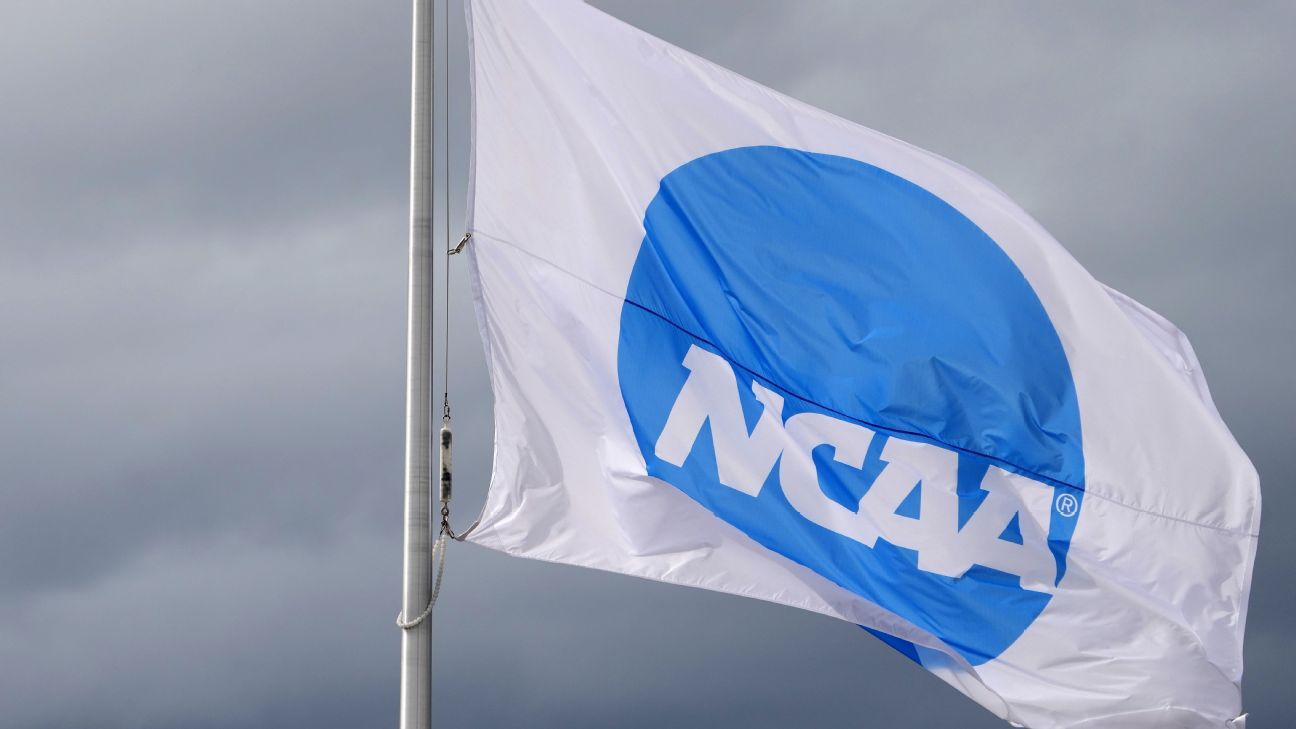
Survey: Male athletes unsure of Title IX process
About 41% of male college athletes said in a survey that they had been told about an incident of sexual assault or domestic violence, but that they were largely unaware of what to do next and mistrusted officials to handle an investigation.
Paula Lavigne
ESPN Staff Writer
About 41% of male college athletes said in a survey that they had been told about an incident of sexual assault or domestic violence, but that they were largely unaware of their school's procedures on what to do next, and many mistrusted school and law enforcement officials to handle an investigation, according to a study released Tuesday.
The study by the sexual assault prevention group It's On Us surveyed 710 male athletes from nine schools, ranging from teams at Division I schools to club teams at smaller colleges. Clemson University was the only school included from a Power 5 conference.
"The majority of the athletes It's On Us spoke with had minimal awareness of their institution's policies, procedures, and resources for survivors, and many did not know who their Title IX Coordinator was," the study states. "This lack of awareness was a barrier for athletes who desired more direction and resources when experiencing a disclosure."
Athletes in the study also said some athletes were "hesitant to recommend that a survivor report to the police or their institution. They expressed concern that the money or status of the accused student would affect how the report of sexual assault would be handled."
Universities, governments and nonprofit organizations have spent millions of dollars on campus sexual assault prevention programs, particularly following high-profile cases of alleged sexual violence involving athletes at schools such as Baylor, Florida State and Michigan State.
The study states that male athletes found existing campus sexual assault prevention programs to be "boring, not reflective of their campus culture [and] unengaging." Training programs are often given online, which participants said was "ineffective because the athletes could easily click through them without paying attention to the content."
It's On Us focused on male athletes for the survey because the nonprofit group has previously found them to be difficult to reach through other campus programming, and because studies have found that male athletes are more likely than non-athlete students to be associated with sexual violence.
While the percentage of male athletes who have been told about an incident is on par with overall male students -- about 47% according to a 2020 federally funded study -- It's On Us executive director Tracey Vitchers said reaching male athletes was a priority because they have great influence on their campuses.
"Athletes are huge drivers of campus culture," Vitchers said. "We felt this was a unique opportunity for athletes to be drivers of positive change."
It's On Us surveyed the athletes via hourlong focus groups mostly composed of members of the same team, but sometimes including athletes from more than one team. The study was funded by the NFL, which has been giving grant money to It's On Us since 2018, spokeswoman Olivia Solow-Niederman wrote in an email. It's On Us began in 2014 as part of a recommendation from the White House Task Force to Prevent Sexual Assault under President Barack Obama. The group operates on more than 300 college campuses in the U.S.
Vitchers said existing sexual assault prevention programs often assume that students have a baseline knowledge of sexual health and well-being, when many simply don't. According to the survey, about half of the participants reported receiving some formal sex education during their K-12 school years, and "almost none of the athletes received or remembered receiving a formal education on consent." About 21% said they first learned about sex through porn.
Athletes in the focus groups were curious about how to manage an unhealthy relationship, how to support survivors and how to intervene to prevent sexual violence, according to the study.
"They have a major part of what's needed, which is that communication level, that relationship level. A lot of these teams see each other as brothers," said Kyle Richard, associate director of men's engagement and special projects for It's On Us and a former college football player. "They've been active bystanders in other ways, whether it's the weight room, making sure athletes, if they're doing a squat are they getting low enough? They're used to calling each other out."
Vitchers said male athletes often approach sexual violence prevention training with their guard up because they feel there is a perception that they are always the "problem," or the training in is response to a publicized incident.
The study recommends schools train students on what to do, rather than what not to do: "For example, it is unhelpful to tell young men 'don't rape' when most cannot imagine themselves ever doing so."
Instead, Vitchers said, the teaching should be "here's how to have healthy communication, here's how to deescalate a situation, here's how to have a conversation with a teammate who is headed in the wrong direction."